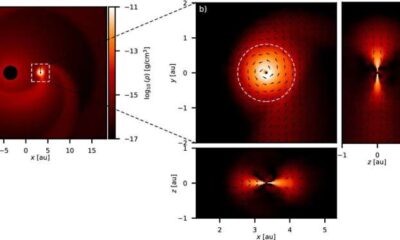World
Israel Keeps Rafah Crossing Closed Amid Hostage Negotiations

The Rafah border crossing between Gaza and Egypt will remain closed indefinitely, according to a statement from Israel on October 7, 2023. This announcement comes despite earlier assertions from the Palestinian embassy in Egypt that the crossing would reopen on Monday for individuals returning to Gaza. The closure adds further pressure regarding the remains of hostages held by Hamas, as negotiations surrounding their return continue to evolve.
Israeli Prime Minister Benjamin Netanyahu‘s office indicated that the reopening of the Rafah crossing is contingent upon Hamas fulfilling its obligations under a ceasefire agreement, particularly the return of the remains of all 28 dead hostages. Earlier, Israel’s foreign ministry had suggested the crossing might be reopened on Sunday, but this has now been postponed.
Hostage Remains and Humanitarian Efforts
Hamas has already returned the remains of 10 hostages and indicated it would hand over the remains of two additional hostages later on Saturday. This handover is a critical aspect of the ceasefire process, which also involves plans for humanitarian aid deliveries and discussions regarding the future of the war-torn territory.
The Rafah crossing, which is the only border point not controlled by Israel prior to the conflict, has been closed since May 2024. A fully reopened crossing would significantly improve the ability for Gazans to seek medical treatment, travel, and connect with family members living in Egypt, where tens of thousands of Palestinians reside.
Emotions run high as families in Gaza wait anxiously for news of their loved ones. Iman Sakani, a mother whose son has been missing since the war began, expressed her despair: “Just like they took their captives, we want our captives. Bring me my son, bring all our kids back.”
As part of the ceasefire agreement, Israel returned 15 bodies of Palestinians to Gaza on Saturday, raising the total number of bodies returned to 135. Meanwhile, the toll in Gaza has now surpassed 68,000, with thousands still unaccounted for, according to the Gaza Health Ministry. The ministry, which operates under the Hamas-led government, does not differentiate between civilians and combatants in its casualty figures but maintains detailed records that are generally regarded as reliable by U.N. agencies.
International Reactions and Ongoing Tensions
The ongoing situation has drawn international attention, particularly from the United States. U.S. President Donald Trump warned that he would support a resumption of military actions by Israel if Hamas does not return the remains of all deceased hostages. Hamas, while asserting its commitment to the ceasefire, has stated that the retrieval of remains is complicated by the destruction in Gaza and the presence of unexploded ordnance.
The hostage support forum, which advocates for the families of those abducted, has vowed to continue weekly rallies until all hostages are returned. “We will bring back all the deceased hostages!” declared Einav Zangauker, mother of one of the hostages returned last week, during a rally in Tel Aviv.
On the humanitarian front, Hamas has urged mediators to facilitate an increase in aid flow into Gaza, which is home to approximately 2 million people. Despite the ceasefire, closures at crossings and restrictions imposed by Israel on aid organizations have hindered relief efforts. U.N. humanitarian chief Tom Fletcher described vast areas of Gaza as “just a wasteland” during a recent visit, underlining the dire conditions faced by civilians.
According to U.N. data, only 339 trucks have been offloaded for distribution in Gaza since the ceasefire began, despite an agreement that approximately 600 aid trucks per day should be permitted to enter. While Israel reported a higher number of trucks crossing on recent days, humanitarian agencies argue that the actual needs in Gaza far exceed current aid levels.
The humanitarian crisis in Gaza has reached alarming levels, with international food security experts declaring famine in Gaza City. The U.N. has verified over 400 deaths attributed to malnutrition-related causes, including more than 100 children. Israel claims it has provided sufficient food, alleging that Hamas has diverted aid, a claim disputed by numerous humanitarian organizations.
As tensions continue to rise, Hamas has accused Israel of violating the ceasefire, asserting that 38 Palestinians have been killed since its implementation. There was no immediate response from Israeli authorities regarding these claims. On Friday, Gaza’s Civil Defense reported that nine people, including women and children, were killed due to Israeli fire while their vehicle reportedly crossed into an Israeli-controlled area.
The complex dynamics of the situation in Gaza remain fluid, with humanitarian needs growing and the prospects for lasting peace uncertain as both sides navigate the fallout from ongoing hostilities.
-

 Science2 months ago
Science2 months agoUniversity of Hawaiʻi at Mānoa Joins $25.6M AI Initiative for Disaster Monitoring
-

 Health2 months ago
Health2 months agoNew Gel Offers Hope for Regrowing Tooth Enamel in Dentistry
-

 Science1 month ago
Science1 month agoALMA Discovers Companion Orbiting Red Giant Star π 1 Gruis
-

 Lifestyle1 month ago
Lifestyle1 month agoPark Jung Min’s Endearing Moment with Hwasa Steals Show at Awards
-

 Science2 months ago
Science2 months agoIROS 2025 to Showcase Cutting-Edge Robotics Innovations in China
-

 Lifestyle2 months ago
Lifestyle2 months agoStone Island’s Logo Worn by Extremists Sparks Brand Dilemma
-

 Lifestyle2 months ago
Lifestyle2 months agoSampson County Celebrates Susie Faison’s 100th Birthday Milestone
-

 Lifestyle2 months ago
Lifestyle2 months agoMary Morgan Jackson Crowned Little Miss National Peanut Festival 2025
-

 Health2 months ago
Health2 months agoStartup Liberate Bio Secures $31 Million for Next-Gen Therapies
-

 Health2 months ago
Health2 months agoTop Hyaluronic Acid Serums for Radiant Skin in 2025
-

 Science2 months ago
Science2 months agoArizona State University Transforms Programming Education Approach
-

 Politics2 months ago
Politics2 months agoJudge Considers Dismissal of Chelsea Housing Case Citing AI Flaws









